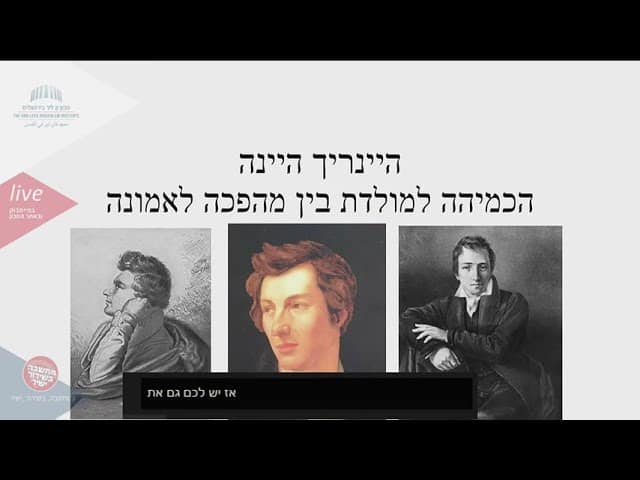The Home of Philosophy: Home as a Metaphor in Thought, 07.12.21
Fourth lecture by Prof. Christoph Schmidt, The Hebrew University of Jerusalem, The Van Leer Jerusalem Institute
A lecture series moderated by Dr. Raef Zreik, Tel Aviv University, Ono Academic College, The Van Leer Jerusalem Institute
Like his friends, the young Hegelians (Ludwig Feuerbach, Karl Marx, Friedrich Engels), Heine linked religion with human beings’ alienation from the state, society, and themselves. Therefore, he sought to establish the Kingdom of Heaven here and now as humankind’s homeland in history. But the poet soon felt uncomfortable in the new home, the intellectual creation of the revolutionaries, and he returned to belief in a personal god. However, unlike the romantics of his time, who connected their return to faith with a political return to monarchy, Heine remained true to the modernist project and the view of democracy as a society of all its citizens, and he tried to find a dialogical balance between religious faith and secular philosophy. Meanwhile, Heine, who remained skeptical towards both the national religious and the revolutionary ideas of a homeland, rejected all attempts of both his contemporaries and the following generations, to ascribe to him a national-religious return to the Jewish home.
In this lecture series we will consider current global issues with the help of metaphors of home and exile, identity and nonidentity, hominess and estrangement. We will ask questions about the meaning of home, and what do people desire when they want to be at home, what are its constituents, the relation between being at home and the question of identity, between home and property, between home and homeland, homeland and populism, homeland and sovereignty, homeland and hospitality, exile and critique. We will further reflect on the morality of being at home, politics of identity, the problem of refugees, immigration, and xenophobia. We hope that through these series of questions we will touch upon the way these themes can shed a light on the way we perceive the reality in Israel-Palestine and how it can shape our political imagination.

